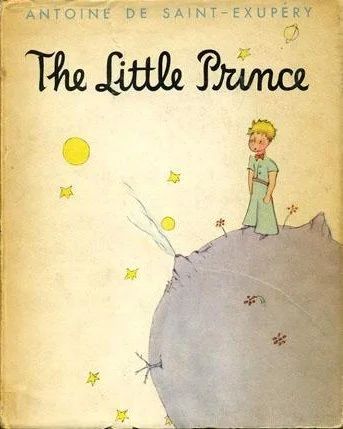Spirituality & Why You Are Here
One of my younger patients told me about a meme that went viral in earlier this year: “Fun fact: some people have an internal narrative—and some don't.”
The meme sparked so many conversations it was covered buy the mainstream media asa story unto itself. People didn’t know about this difference, and were astonished.
Those who have been listening to a continuous internal dialog for their whole lives were incredulous: “No voice in your head? How do you think?” Those who who don’t have an internal dialog were equally astounded: “How could you possibly function with a voice in your head all the time?”
People without a voice in their head still think in words, but for many of them, that plays out in a rather straightforward way. One of the best examples I can give you is from David Foster Wallace’s collection of essays, Consider the Lobster (Little, Brown & Co., 2006). In How Tracy Austin Broke My Heart, he reviews Austin’s autobiography, although his main theme is about the consciousness of world-class athletes.
He tells us about the young tennis star’s meteoric rise to two-time Grand Slam winner, and her subsequent demise, due to injuries and fatigue—all before she was 20. Then, on the eve of her comeback, she was stopped in her tracks when her leg was crushed in a car accident.
An empath’s response to such a horrific, life-altering tragedy would be significantly different than Austin’s. She writes, and I think you will agree that this is remarkably succinct: “I quickly accepted that there was nothing I could do about it.” Wallace wonders, with his usual perspicacity and humor, “What if…that statement is not only true but exhaustively descriptive of the entire acceptance process she went through?”
There are people like that. Their inner discourse describes reality directly, and they accept what they cannot change and move on with their lives without a whole lot of inner turmoil.
Your Search for Meaning
You are not like that. An empath’s inner discourse thrives on the search for meaning. Your objective is not to get past life events, good or bad, but to understand what they mean.
And here’s why: There must be meaning, because you have always known that there is meaning. There is something greater than you, greater than you and me, greater than you and me and the universe, cradling all that is. You have always, from your very first moment of conscious thought, known that this is true.
No matter what confronts you or confounds you or hurts you, you understand it in this greater context. And, you live your life according to an ethic and a code of honor that arises from this aura of meaning that permeates everything.
You have since birth. For me, it was knowing how to care for my sister and my mother. I intuitively knew what to do in any situation. My mother was brilliant and we had a tumultuous relationship with her. My sister needed me first, and I just knew that singing to her was the way to drain the pain out of her and into me, where I could heal it for her. This led me into musical theater as a young woman, but more importantly, throughout our lives, my sister has felt free to call me at any time she needed a song. My mother was an empath, too, but she drifted into addictions, and I knew how to help her, as much as she would allow, along that merciless path.
From the outset, I knew that I was here to help them. You have also had this experience of knowing that you are here for a reason. Pause to think about the way we phrase this to ourselves in our inner discourse: “I am here for a reason.” Here from where? Why do we feel like we have arrived in this world? It is because we are also born with an awareness of some other place from which we came.
The Darkness Within
We came here to do special work, and every empath I talk to feels like they were meant to be here now, during this historic moment.
Before we get to why, let me give you a word of caution. You are painfully aware of how humanity’s intuitive awareness of something greater has been twisted into religious justifications for war and mayhem. This has been true throughout all history and across all cultures. The story is always the same: clerics tell you that the only divine things that matter all happen after you’re dead. They tear your spirit from your life and place it beyond your grave, so you will charge screaming into battle to go get it.
That story goes really deep, and it might affect you without you fully realizing it. You can catch yourself striving for a reward beyond the grave in lots of ways. I have patients who are deeply empathic care givers. They are doing sacred work. But, sometimes, they drive themselves perilously far into the threshold between here and where they came from.
Your empathic nature can easily be dangerous to your health, in the world as it is right now. Your inner dialog and your sense of purpose can make your life seem like a speck in the overwhelming expanse of which you are aware. You can subconsciously place the fulfillment of your purpose beyond the grave. There are several ways to deal with this; have the courage to examine them all. An empath can fulfill their calling from anywhere in society. Above all else, preserve yourself.
Why You Are Here
Your purpose does not lie beyond the grave. You are here now because you are needed here, now. In almost any population of mammals, there are always a few animals who take it upon themselves to stay at the perimeter, keeping the tribe together and scouting for danger. They spread awareness.
We are them. We see more of the terrain than others do, and we understand the lay of the land. We can roam farther because we can draw energy from the cradling force holding everything. Our internal discourse rings with information from something greater. Our perimeter is our heightened understanding of what is happening to humanity and to all living things today. We are here to keep the tribe on the path to enlightenment. We are here to scout ahead and find the way to go.




